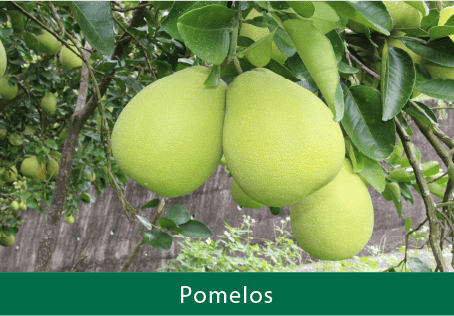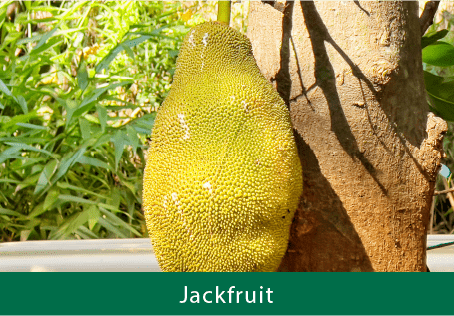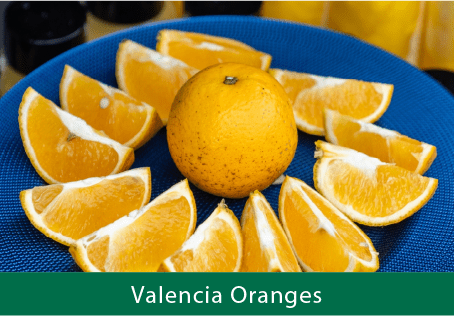 |
||
A FRUITFUL JOURNEY INTO TAITUNG
The end of June brought exciting news for Taitung County, as the import ban on atemoya from Taiwan to mainland China was finally lifted after two long years. This decision was made based on a report by Taitung authorities, showcasing the improved quarantine measures implemented by local farmers. Taitung Magistrate April Yao played a crucial role in relaying the desire of Taitung atemoya growers to export their crop to China during this year's Strait Forum. Her efforts have finally paid off, and the resumption of imports is a significant achievement for Taitung County. Atemoya cultivation is a crucial industry in Taitung, with approximately 2,800 hectares of land dedicated to growing the fruit, and an estimated annual production of 20,000 metric tons worth approx. 100 million USD. The suspension of imports in September 2021 resulted in a significant loss of revenue. The lifting of the ban is a much-needed respite for Taitung's farmers, who have been struggling to sell their produce at a fair price due to the limited market. With the resumption of exports to China, the farmers can now sell their crops at a much higher price, with some estimates suggesting that prices could reach up to 2 USD per catty. 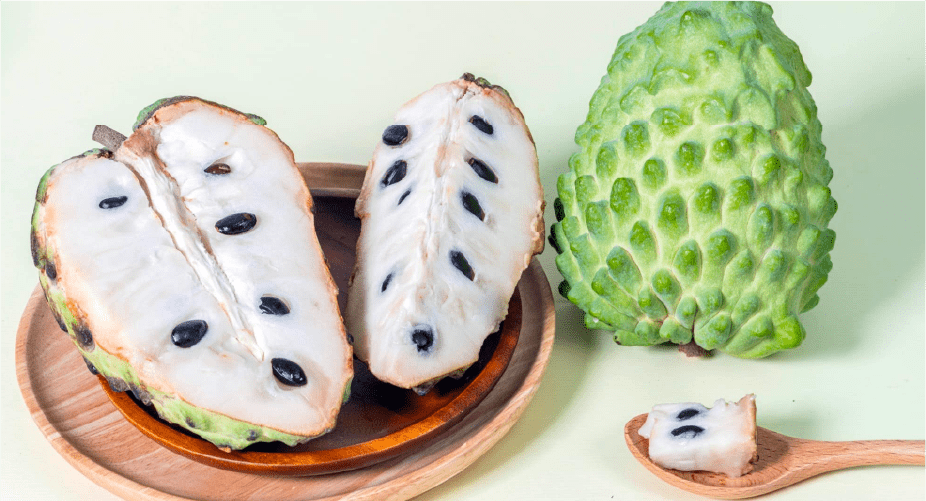 No stone unturned in the quest for quality
To ensure that the quality of the export meets the required standards, Taitung County Government has implemented strict regulations that packaging plants need to follow. These regulations focus on improving the cleanliness of the packaging plants and ensuring that the fruits are of the highest quality. The county government has also collaborated with National Taitung University to provide training courses for packaging plant operators, aiming to improve the quality control of the entire supply chain. The resumption of atemoya exports to China is a significant milestone for Taitung County, and it is hoped that this will pave the way for the resumption of other Taiwanese fruit exports to China. Taitung County Government will continue to work closely with relevant authorities to ensure that the highest standards of quality and safety are maintained, and that Taitung's farmers can continue to thrive. What are Atemoya?
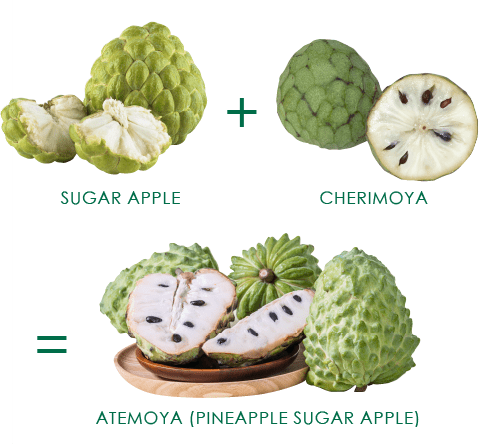 Custard apples, also known as sugar apples, are a popular fruit originally found in South America. One notable variety of custard apple is the so called “pineapple sugar apple" or "鳳梨釋迦", as it is known in Taiwan. Most of the custard apples grown in Taitung belong to this variety, which is a hybrid of the sugar apple and the cherimoya. Its cultivation dates back to the early 1900s when the first cross was made by a horticulturist at the USDA's Subtropical Laboratory in Miami. The resulting fruit was of superior quality to the sugar apple and was named "atemoya," which is a combination of the old Mexican name for sugar-apple and "moya" from cherimoya. Atemoya custard apples have a heart-shaped or rounded appearance, with pale-green, easily bruised, bumpy skin. The flesh is not segmented like that of the sugar-apple, bearing more similarity to that of the cherimoya. It is very juicy and smooth, tasting slightly sweet and a little tart, reminiscent of a piña colada. The taste also resembles vanilla from its sugar-apple parent. Custard apples are cultivated in areas with a tropical and subtropical climate, making Taiwan an ideal location for cultivation. The country is currently the largest producer of custard apples in the world, with Taitung County being the major place of cultivation. To ensure the quality of the fruit, farmers in Taitung rely on manual pollination, which guarantees that each fruit develops fully. Taitung’s atemoya are not only visually appealing, with large and flawless skin, but also have a longer shelf life, making them highly sought after in international markets, including China, Singapore, and Canada. Colorful, Sweet Vitamins
It goes without saying that Taitung, with its exceptional natural environment, fertile soil and warm weather, is home to many more varieties of fruits than just custard apples. In addition to the atemoya, here are some other popular fruits that grow in the region:
Good, Clean, Fair
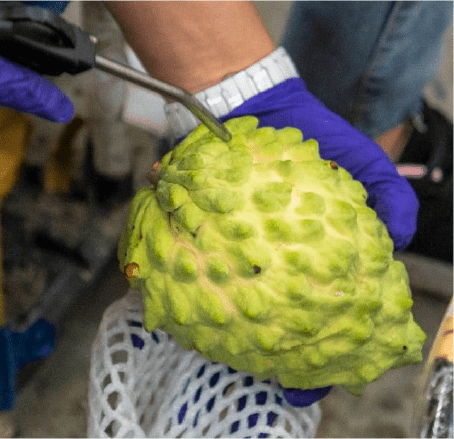 Among the challenges faced by farmers in Taitung County are pollution from neighboring fields, organic product processing certification, smart agricultural technology, and how to connect with international markets to improve competitiveness. However, the government has implemented policies to support and promote eco-friendly and organic farming in the county. These policies include resource counseling, organic certification fee subsidies, full subsidies, organic fertilizer subsidies of 100 USD per metric ton, agricultural machinery subsidies for shared use at a rate of half the cost and personal use at a rate of one-third the cost, and the supply of organic rice and vegetables to schools. The results of these policies are impressive. In 2019, there were 672 hectares under organic farming, and by February 2023, this number had increased to 1,242. Similarly, the number of hectares under eco-friendly farming rose from 667 in 2019 to 1,141 in early 2023. The government has also been promoting eco-friendly and organic farming through various channels, including educational seminars, organic farming exhibitions, and sales. For example, there were 26 events promoting organic and environmentally-friendly farming in 2021 alone. In terms of subsidies, the government offers subsidies of 1000 USD per hectare for environmentally-friendly and/or organic farming practices and 2000 – 2600 USD per hectare per year for making the transition to organic farming with a three year limit. While there are still challenges to overcome, the government's support and farmers' dedication make it clear that organic and environmentally-friendly farming will only continue to grow in Taitung County. A bumpy road to a bright future
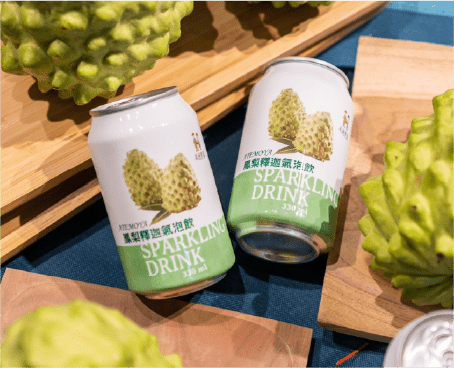 In conclusion, Taitung County is a region rich in agricultural diversity, with a wide range of fruits that thrive in its favorable climate. Of course, the road to success was not all smooth sailing, and it would be wrong to say that there were no issues with Taitung’s agricultural sector. Taitung’s farmers, however, with the assistance of the County Government, were able however to turn crisis into opportunity. Taitung’s primary sector, by dealing with these challenges, has undergone a series of wide-ranging reforms. For instance, regrading agricultural products allows for quality control review and differentiation of products for various markets. Now, the best produce is exported internationally where it is marketed as fresh fruit, the next grade of goods is sold in domestic fresh markets, and average quality products are used for food processing. This seamless integration of the primary, secondary and tertiary sectors has enhanced Taitung’s overall economic competiveness and enabled farmers to increase their revenue. Be it the silky savor of an atemoya, the fragrant richness of a summer-snow mango or the sweet and sour taste of a ripe pomelo, one is sure to find in Taitung a flavor for every palette, naturally grown and painstakingly nurtured by some of the most skilled farmers in Taiwan. Feasting on the delicious local fruit might actually be the single best way to appreciate the value of Taitung’s Slow Economy! |
||
| © TAITUNG COUNTY GOVERNMENT 2023 |





